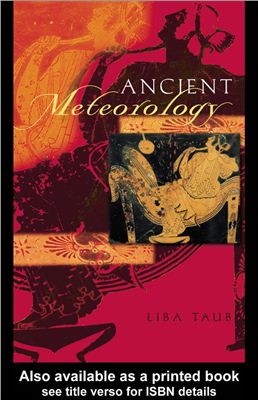London - New York: Routledge, 2003. - 271 р.
Sciences of Antiquity is a series designed to cover the subject-matter of what we call science. The volumes discuss how the ancients saw, interpreted and handled the natural world, from the elements to the most complex of living things. Their discussions on these matters formed a resource for those who later worked on the same topics, including scientists. The intention of this series is to show what it was in the aims, expectations, problems and circumstances of the ancient writers that formed the nature of what they wrote. A consequent purpose is to provide historians with an understanding of the materials out of which later writers, rather than passively receiving
and transmitting ancient ‘ideas’, constructed their own world-view.
Sciences of Antiquity is a series designed to cover the subject-matter of what we call science. The volumes discuss how the ancients saw, interpreted and handled the natural world, from the elements to the most complex of living things. Their discussions on these matters formed a resource for those who later worked on the same topics, including scientists. The intention of this series is to show what it was in the aims, expectations, problems and circumstances of the ancient writers that formed the nature of what they wrote. A consequent purpose is to provide historians with an understanding of the materials out of which later writers, rather than passively receiving
and transmitting ancient ‘ideas’, constructed their own world-view.

